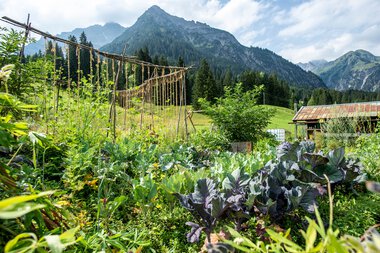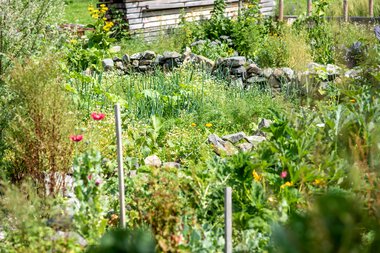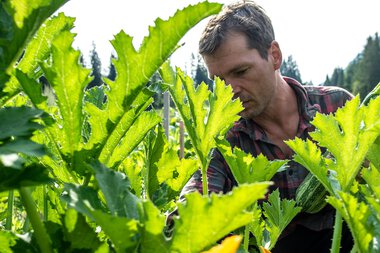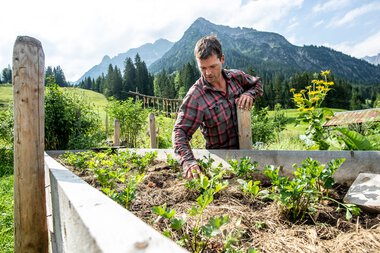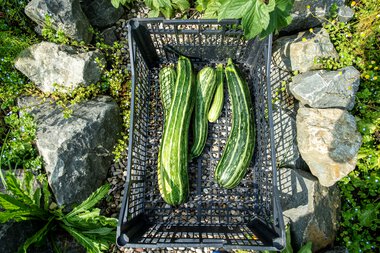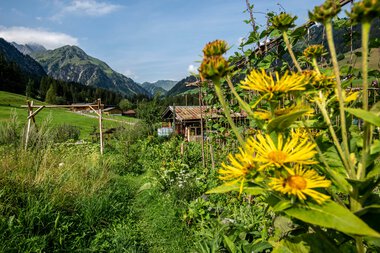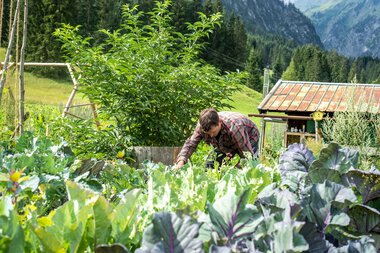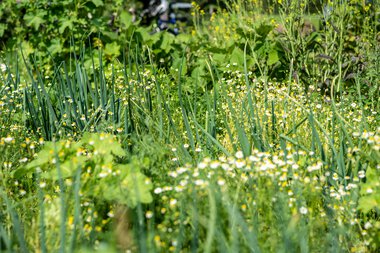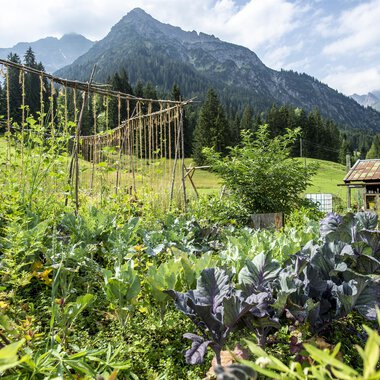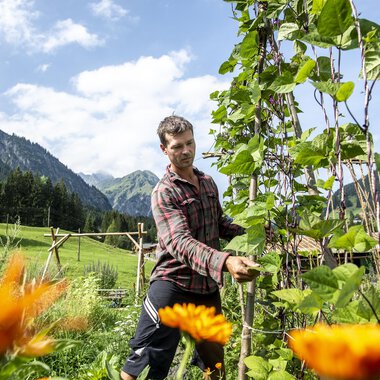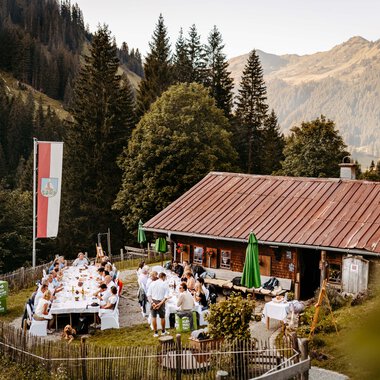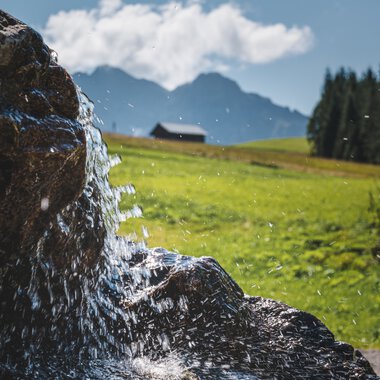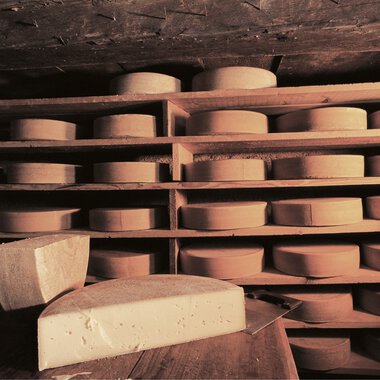Where hope and inspiration grow
29.08.2017
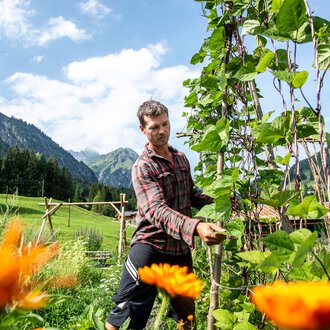
A few years ago, Andi Haller was still building kickers in the snow park, today it's more often raised beds. He grows mixed crops, develops permaculture gardens and overturns conventional ideas about what an independent, sustainable life should look like. He has wholeheartedly committed himself to the experiment of self-sufficiency and is creating a permaculture forest garden in Mittelberg.
For him, being self-sufficient does not mean isolating themselves, but rather working with society to find alternative, sustainable paths that are viable for everyone. The philosophy of permaculture makes him optimistic about the future. His passion is infectious and so there are rows and rows of new gardeners, and not just in Kleinwalsertal.
What is a permaculture forest garden?
There are now around 2,000 square meters on which I grow around 100 different plants, i.e. vegetables, fruit, berries, herbs and medicinal plants. The forest is a model - in the way it functions, because it is completely self-organizing, but also in the way it looks. The garden may not correspond to the usual ideas of what a garden should look like - everything grows a little more wildly, the grass is allowed to grow, there are piles of stones and old wood. Nature is a professional in everything it does, permaculture tries to understand natural processes and habitats and then copy them.
Why do you have the garden right here?
My home is in the Walsertal. My ancestors were far less technologically equipped and got it right, so I can do it too. There is a widespread opinion in the valley that it can't work here at this altitude and with such a short growing season. But I see it more as a challenge. I deliberately go out on a limb and experiment a lot. I am convinced that you can create the ideal conditions for everything, or at least for a great many plants. In permaculture, or in fact in any garden, it is important to establish microclimate zones. In other words, I try to create structures with hills, corners, curves and edges to create niches that meet the requirements of the respective plant.
How did the idea for the garden come about?
In 2011, I was hospitalised with a broken vertebra. That gives you a lot of time to question yourself and your life. Then Fukushima happened, which made me angry and sad in equal measure. I realised that I myself was contributing to such things happening in the world. I started researching how I could take personal responsibility and break out of such cycles. I then very quickly came across self-sufficiency and permaculture because I wanted to start at the base, our basic existential need: food.
What fascinates you about permaculture?
It makes me more independent and allows me to lead a more self-determined life. If we carry on as we are, we will leave a catastrophic livelihood for future generations. For me, permaculture is a way in which we can do a lot of good.
It is also the most natural form of cultural landscape management. When the industrialization of agriculture took on ever more curious excesses in the 1970s, the child was given a name. However, the principle of permaculture does not shift responsibility onto farmers, but can be applied to all areas of life.
Why did you decide to become self-sufficient?
Of course, I'm not free of obligations either, but it's very self-reflective. For me, it's not about being self-sufficient for 99% of the year, but rather that my output doesn't take any major detours and that I spend less time on work that, in the worst case, I'm not really convinced of. In summer, I can feed myself 70 to 80 percent from the garden and I try to preserve as much as possible. But I'm just as happy to give things away to friends, family and people who appreciate them. Ideally, I don't just make them happy, but also give them food for thought.
What has the garden taught you?
Today, everything is very short-lived, but in gardening you can't think in time frames of a few hours or days, it's always seasonal and even years (fruit trees). This is great for practising patience and you automatically learn to live in rhythm with nature again. Especially for me, where we have four seasons, there is definitely a connection with our own performance. I'm always fascinated by how tasty things taste and how much more energy they contain. When I make a soup stew entirely from the garden, you're really full with one plate and not just for two hours.
What do we as consumers need to recognize?
If you think about it, you realize that we are just a small wheel in a huge organism. We make numerous decisions every day that can make a difference. With every purchase we make, we have a choice - do we trust large corporations with our food, the basis of our existence, who act with the motive of profit, which, as we know, must increase every year, and it is also obvious that quality will decrease in the long term. Or do we take responsibility ourselves, switch to organic products, support the neighboring organic farmer or start providing for ourselves?
What do you want for the future?
I would like to see a change in the way we view the cultural landscape. That everyone doesn't just see their own little kingdom, but the habitat as a whole. Looking after the cultural landscape is everyone's business, not just the farmers. I hope that everyone will think about what they can do to help safeguard the livelihoods of the generations to come.

